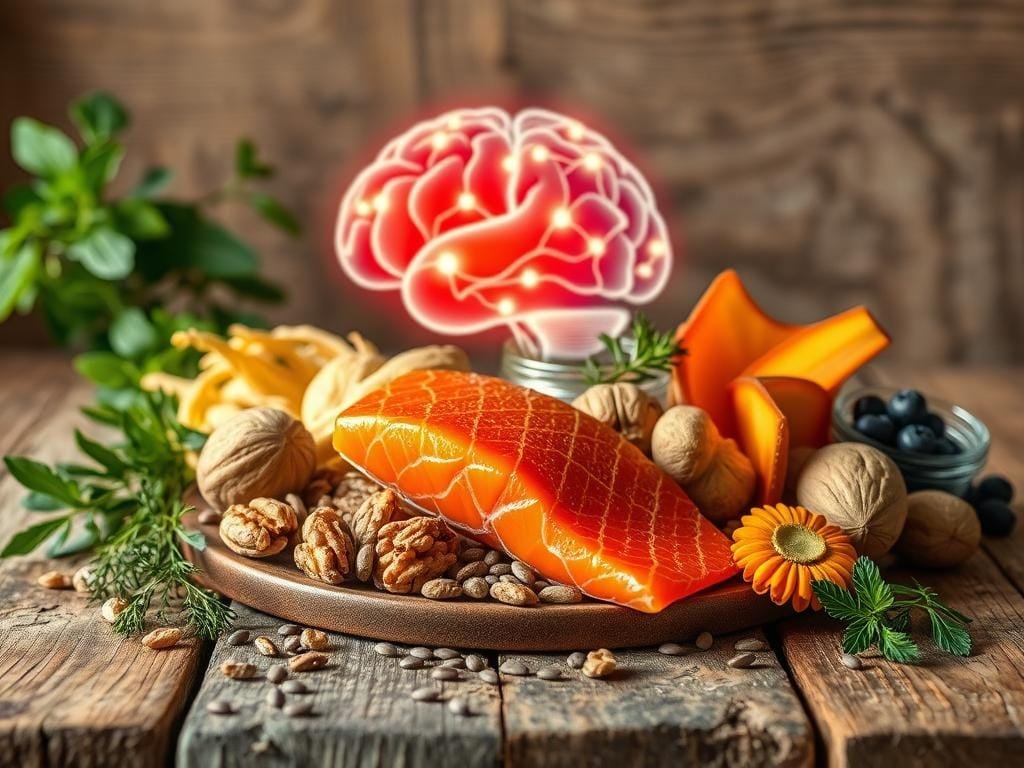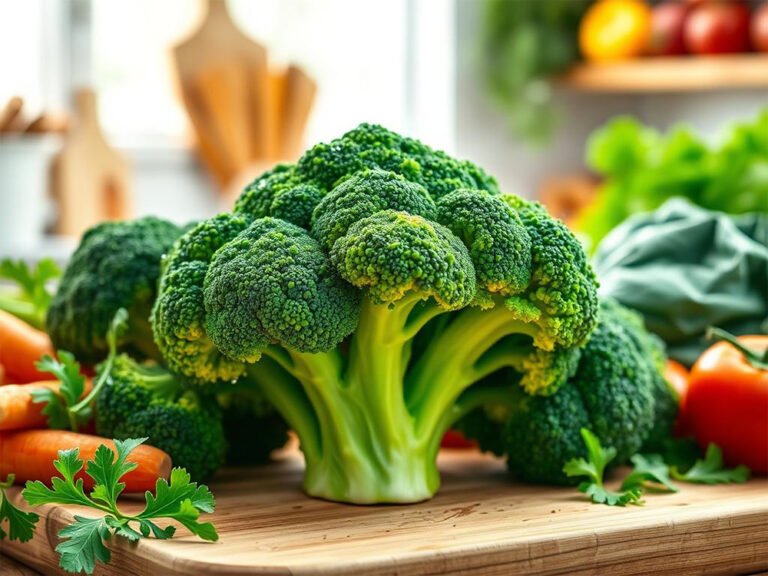The Best Fluffy Pancakes recipe you will fall in love with. Full of tips and tricks to help you make the best pancakes.
10 Surprising Nutrition Facts You Didn’t Know About! ( Food Facts Healthy Eating )
Healthy eating is more than just a trend; it’s a lifestyle that shapes how we feel, look, and function every day. But with so much information out there, how do you separate fact from fiction? What if some of the most surprising truths about nutrition have been hiding in plain sight all along?
Table of Contents
ToggleFrom foods that boost your mood to unexpected sources of essential nutrients, this blog will unveil 10 Surprising ‘nutrition facts’ that could reshape how you approach your meals. Whether you’re a seasoned health enthusiast or just starting your journey, you’ll discover insights that challenge common misconceptions and offer practical tips for better choices.
Are you ready to uncover the hidden secrets of healthy eating? Let’s dive into the facts that will leave you both informed and inspired!

Discover the good stuff in omega-3 fatty acids and why ‘whole foods’ matter. These surprising food facts will give you useful tips for a healthier life. Let’s explore these key nutrition points together.
The Hidden Benefits of Omega-3 Fatty Acids
‘Omega-3 fatty acids’ are key to a healthy diet. They offer many benefits that people often miss. These fats are important and can’t be made by our bodies. We must get them from the food we eat.
Sources of EPA and DHA
Fatty fish like salmon, mackerel, and sardines are great sources of ‘omega-3’s. They have lots of EPA and DHA. Walnuts, flaxseeds, and chia seeds are good for you too. They have ALA, which our bodies can turn into EPA and DHA.
Impact on Heart Health and Chronic Diseases
‘Omega-3’s are good for your heart. They can help lower bad fats and blood pressure. This can lower the risk of heart disease.
The American Heart Association says to eat foods rich in omega-3s. Eating enough omega-3s can also lower the risk of other diseases. This makes omega-3s very important for staying healthy.
| Source | EPA (mg per serving) | DHA (mg per serving) |
|---|---|---|
| Salmon (3.5 oz) | 1,500 | 1,500 |
| Mackerel (3.5 oz) | 4,580 | 2,500 |
| Sardines (3.5 oz) | 1,400 | 1,100 |
| Walnuts (1 oz) | 0 | 0 |
| Flaxseeds (1 oz) | 0 | 0 |
Nutrition Facts That Challenge Fat Common Beliefs
Many people follow common beliefs about food, missing out on key facts. For instance, not all fats are bad. Healthy fats in foods like avocados and olive oil are good for you.
Another myth is that carbs are bad. But carbs from fruits, veggies, and whole grains give you energy and nutrients. They’re important for a healthy diet.
Some protein sources are not as good as they seem. Processed meats have bad fats and preservatives. But plant-based proteins like legumes and nuts are healthier.
Learning these surprising facts helps you understand nutrition better. By questioning old beliefs and looking at food’s real value, you can make healthier choices.
| Common Beliefs | Surprising Facts |
|---|---|
| All fats are bad for you | Healthy fats can support health of heart |
| Carbohydrates should be avoided | Whole food carbs are essential for energy |
| All protein sources are healthy | Processed meats can pose health risks |
| Gluten-free means healthier | Many gluten-free products lack essential nutrients |
| Snacking is unhealthy | Nutritious snacks can boost metabolism |
The Role of Nutrients Like Vitamin C in Your Diet
Knowing about vitamins and minerals in your food is key to good health. ‘Vitamin C’ is very important because it helps a lot. It fights off bad stuff in your body and keeps your cells working right.
Antioxidant Properties
It is great at fighting off bad stuff in your body. Eating foods high in ‘vitamin C, like oranges and strawberries, helps a lot. It keeps your body healthy and working well.
Benefits to Immune Health
is also good for your immune system. It makes your body’s defense stronger. Eating foods with lots of ‘vitamin C’ can help you get better faster when you’re sick.

Why Bananas Are a Great Source of Fiber
Bananas are tasty and full of fiber. They help your digestive health a lot. A medium banana has about 3 grams of fiber.
Fiber Content and Digestive Health
The fiber in bananas helps you go to the bathroom regularly. It stops constipation. This fiber also keeps your blood sugar steady, giving you energy all day.
You can eat bananas as a snack. Or add them to smoothies, oatmeal, or baked goods.
Here’s a quick breakdown of the fiber content in bananas and its benefits:
| Aspect | Details |
|---|---|
| Fiber per Medium Banana | Approximately 3 grams |
| Main Type of Fiber | Soon-to-be soluble fiber |
| Digestive Health Benefits | Promotes regular bowel movements |
| Blood Sugar Regulation | Helps maintain stable energy levels |
Eating bananas can really help your fiber intake. It also helps your digestive health a lot.
Understanding the Dangers of ‘Added Sugar’
‘Added sugar’ is a big worry in our dietitian today. It’s found in many Industrial foods. It can make you gain weight and is linked to ‘obesity’ in the US.
Many snacks and drinks have a lot of ‘added sugar’. This can make you eat more calories without getting the nutrients you need.
How Added Sugar Affects Blood Sugar Levels
When you eat a lot of ‘added sugar‘, your blood sugar goes up fast. This is because your body quickly breaks down these sugars. It leads to quick energy boosts followed by big drops.
These ups and downs can mess with your energy and mood. It might make you want to eat more and crave unhealthy snacks.
Links to Obesity and Chronic Disease
Studies show that eating too much-added sugar can lead to ‘obesity. The Centers for Disease Control and Prevention (CDC) says it’s a risk for diseases like diabetes and ‘heart disease’. These problems come from eating too much sugar and refined carbs over time.
Processed Foods and Their Nutritional Pitfalls
are everywhere in our diets. They often have bad stuff that hurts our health. It’s important to know what’s in them. By reading labels, we can avoid these bad things and stay healthy.
Detecting Harmful Ingredients
When checking out Industrial food, watch for these bad ingredients:
- Added sugars, which can make us fat and sick.
- Trans fats are bad for our hearts.
- Sodium, too much can raise our blood pressure.
- Preservatives like BHA and BHT, might not be good for us.
Health Concerns Associated with Processed Foods
Eating too much-processed food can cause problems. These include:
- Getting too fat, because they have lots of calories but not much good stuff.
- ‘Heart disease’, because they have bad fats and sugars.
- Diabetes, because too much sugar can make us resistant to insulin.
- Stomach problems, because they don’t have enough fiber.
By carefully reading labels, we can choose better foods. This helps us avoid the bad stuff in many Industrial food.
| Ingredient | Health Impact |
|---|---|
| Added Sugars | Contributes to ‘obesity’ and diabetes |
| Trans Fats | Increases risk of ‘heart disease’ |
| Sodium | This can lead to high blood pressure |
| Preservatives (BHA, BHT) | Linked to various health issues |

Healthiest Whole Foods to Include in Your Diet
Eating the healthiest ‘whole foods’ every day is key. Choose colorful fruits and veggies and ‘whole grains’. This helps keep you healthy.
Fruits and Vegetables That Boost Overall Health
Choose bright fruits and veggies. They have vitamins, minerals, and ‘antioxidants’. These help your immune system and fight off diseases. Here are some good ones:
- Spinach and kale for their high vitamin K content
- Blueberries, known for their ‘antioxidant’ properties
- Sweet potatoes, rich in beta-carotene for vision health
- Bell peppers, loaded with ‘vitamin C’
- Broccoli is a great source of fiber and vitamins
Benefits of Whole Grains
‘Whole grains’ are full of nutrients. They help you digest food better and keep you at a healthy weight. Here are some good ones:
| Whole Grain | Nutritional Benefit | Serving Size (cooked) |
|---|---|---|
| Quinoa | Complete protein with all nine essential amino acids | 1 cup |
| Brown Rice | High in ‘magnesium’ and B vitamins | 1 cup |
| Oats | Rich in soluble fiber, supports heart health | 1 cup |
| Lentils | High in protein and iron | 1 cup |
| Barley | Supports digestive health due to high fiber content | 1 cup |
The Importance of Magnesium for Bone Health
‘Magnesium’ is key for strong bones. It helps with many body functions and makes bones stronger. Eating foods rich in ‘magnesium’ is good for you.
Key Functions of Magnesium in the Body
‘Magnesium’ helps your body use calcium better. Calcium is important for bones. It keeps bones strong and prevents them from getting weak.
Many foods are full of ‘magnesium’. These include:
- Leafy greens
- Nuts and seeds
- ‘Whole grains’
- Legumes
Studies show that ‘magnesium’ helps prevent bone breaks. Eating foods rich in ‘magnesium’ makes your bones stronger. This keeps you stable and healthy.
Exploring the Link Between Potassium and Heart Disease
‘Potassium’ is key for your health of heart. It helps control blood pressure and keeps muscles working right. Not enough ‘potassium’ can cause heart problems.
Eating foods high in ‘potassium, like bananas and sweet potatoes, helps your heart. These foods can lower heart risk. They make your heart work better and help avoid high blood pressure.
The American Heart Association says to eat more source of potassium. It’s good to balance ‘potassium’ with sodium for your heart. This can help prevent ‘heart disease’.
| Food Source | Potassium Content (mg per serving) | Health Benefits |
|---|---|---|
| Bananas | 422 | Supports muscle function, lowers blood pressure |
| Oranges | 237 | Boosts health of heart, aids in hydration |
| Sweet Potatoes | 540 | Regulates blood sugar, provides ‘antioxidants’ |
| Spinach | 839 | Enhances heart health, boosts vitamins and minerals |
Eating foods rich in ‘potassium’ can make you healthier. It can lower your risk of heart. Try to keep track of how much ‘potassium’ you eat to help your heart.
How Soluble Fiber Contributes to Gut Health
Soluble fiber is good for your gut. It feeds the good bacteria in your intestines. This helps keep your gut healthy.
Foods like oats, beans, and fruits are full of soluble fiber. They help you eat healthy.
Gut Health and Nutritional Benefits
Eating soluble fiber helps prevent constipation. It makes your digestion better. This fiber turns into a gel that helps you go to the bathroom.
It also helps keep your heart healthy by controlling cholesterol. This is a big plus for your heart.
Try to eat more foods rich in soluble fiber:
- Oats
- Barley
- Beans and legumes
- Fruits like apples and oranges
- Vegetables such as carrots and broccoli

Conclusion
Healthy eating doesn’t have to be complicated—it’s about understanding the facts and making choices that work for your lifestyle. The 10 surprising ‘nutrition facts’ we’ve explored show just how fascinating and diverse the world of food can be. From unexpected nutrient sources to insights that could transform your daily habits, these discoveries are stepping stones to a more mindful approach to eating.
So, what will you do with this knowledge? Will you experiment with new ingredients, adjust your portion sizes, or take a closer look at food labels? Every small change adds up, bringing you closer to a healthier, more balanced life.
Remember, eating well is a journey, not a destination. As you continue to learn and explore, you’ll uncover even more ways to nourish your body and mind. Which of these facts surprised you the most? We’d love to hear your thoughts and tips in the comments! Together, let’s make healthy eating both enjoyable and sustainable.
FAQ
What are some surprising ‘nutrition facts’ about common foods?
Many foods are often misunderstood. For example, avocados are high in healthy fats. These fats can help your heart. Bananas are also great for ‘potassium’ and fiber.
Some think eating fat makes you gain weight. But it’s really about the type of fat you eat.
How can omega-3 fatty acids benefit my health?
Omega-3 fatty acids, found in fatty fish like salmon, are very good for you. They can lower your risk of cardiovascular disease. They also help reduce inflammation in your body.
What role does vitamin C play in my nutritious diet?
‘Vitamin C’ is a strong antioxidant. It helps keep your immune system strong. Eating foods rich in ‘vitamin C’, like citrus fruits, fights off free radicals and boosts your health.
Why should I include more fiber in my diet?
Fiber is great for digestion and blood sugar control. Foods like ‘whole grains, fruits, and veggies are full of fiber. They keep your gut healthy and lower the risk of chronic disease like diabetes and ‘heart disease’.
What are some dangers associated with ‘added sugars’?
Can cause blood sugar spikes. They can also lead to obesity and ‘chronic diseases’. It’s important to watch how much-processed food and sugary drinks you consume.
How can I identify harmful ingredients in processed foods?
Check labels for ‘added sugars’, trans fats, and high sodium. Avoid foods with lots of unknown additives. This helps you make healthier choices.
What are the healthiest ‘whole foods’ I should eat?
Eating colorful fruits and veggies, ‘whole grains’ and legumes is key. They’re packed with vitamins, minerals, and antioxidants. This boosts your overall health.
How does magnesium support bone health?
Helps your body absorb calcium. It’s important for strong bones. Foods like leafy greens, nuts, and seeds are rich in magnesium. They help prevent osteoporosis.
What is the relationship between ‘potassium’ and the health of the heart?
‘Potassium’ helps control blood pressure and supports heart function. Eating foods like bananas and oranges can lower heart risk.
How does soluble fiber contribute to gut health?
Soluble fiber feeds good gut bacteria and aids digestion. It prevents constipation. Foods like oats and beans are high in soluble fiber. They also help your heart by controlling cholesterol.



